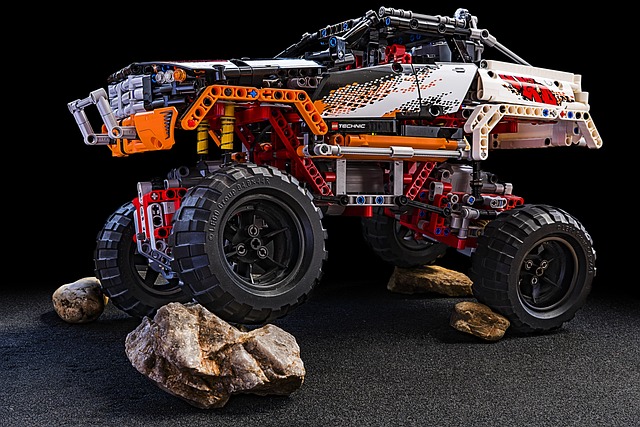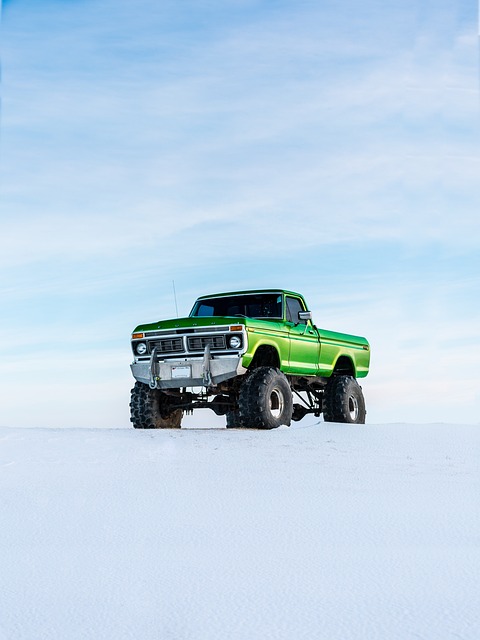RGV (Rims, Grooves, and Vanes) wheels are crucial for safe and efficient towing, offering superior grip and weight distribution on diverse terrains. Towing chains, paired with RGV wheels, are indispensable for vehicle recovery, especially in off-road situations. RGV wheels have unique designs enhancing stability and reducing wear, making them suitable for heavy-duty operations. Choosing the right towing chain (e.g., RGV-specific) matching your vehicle's weight and load is essential. Regular maintenance, including inspections and protective coatings, ensures safe and reliable performance. RGV wheels further improve traction and stability in real-world towing scenarios.
In the realm of vehicle recovery and towing, understanding the intricate components like RGV (Rigid Gunnel Vehicle) wheels is paramount. These specialized wheels play a crucial role in facilitating safe and efficient towing, especially in challenging conditions. This article delves into the world of towing chains, exploring their purpose, types, and the vital considerations for selection and maintenance. From understanding RGV wheels to real-world case studies, we unravel the secrets behind effective towing chain usage.
- Understanding RGV Wheels: A Key Component in Towing Chains
- The Role of Towing Chains: How They Facilitate Vehicle Recovery
- Types of Towing Chains: Exploring the Differences and Applications
- Choosing the Right Towing Chain: Factors to Consider for Safe Towing
- Maintenance and Safety Tips for Extending Towing Chain Lifespan
- Real-World Scenarios: Case Studies of Effective Towing Chain Usage with RGV Wheels
Understanding RGV Wheels: A Key Component in Towing Chains

RGV (or Rims, Grooves, and Vanes) wheels are a critical component in towing chains, designed to enhance stability and efficiency during the towing process. These specialized wheels feature unique rim structures with grooved patterns and vanes that play a vital role in maintaining grip and control while towing heavy loads. The grooves allow for better traction on various terrains, preventing slippage, which is crucial when towing vehicles or heavy equipment.
Additionally, RGV wheels’ vane design helps to distribute weight evenly across the towing chain, reducing pressure points that could lead to damage or wear. This feature ensures a smoother towing experience, minimizing the risk of accidents and prolonging the life of both the wheels and the towing setup. Their robust construction makes them suitable for demanding towing applications, making them an essential choice for professionals in the trucking and automotive industries.
The Role of Towing Chains: How They Facilitate Vehicle Recovery

Towing chains play a pivotal role in facilitating vehicle recovery, especially in challenging situations where a vehicle has broken down or gotten stuck. They are essential tools for RV owners and drivers alike, ensuring that they can efficiently pull their vehicles to safety when faced with obstacles like steep inclines, muddy terrain, or off-road adventures.
These chains, designed with robust materials like steel, provide superior grip and traction on various surfaces. When connected between a towing vehicle and the stranded one, they act as a secure connection, allowing for controlled movement. The use of RGV wheels further enhances this process, enabling smooth rolling and easy navigation, especially in rough conditions. This combination ensures that recovery operations are swift, safe, and effective, ultimately saving time and potentially preventing more significant damage to vehicles.
Types of Towing Chains: Exploring the Differences and Applications

Towing chains come in various types, each designed for specific applications and vehicles. One notable category is the RGV (Rigid Go-Up Vehicle) wheels towing chain, which is built to handle the unique demands of RGVs. These chains are characterized by their strength and versatility, making them ideal for heavy-duty towing operations where stability and durability are paramount. The RGV wheel configuration necessitates a specialized chain that can support the vehicle’s weight while ensuring precise control during movement.
Another type is the conventional tow bar chain, commonly used in lighter vehicles and everyday towing scenarios. These chains offer a more basic level of security and are generally less robust than their RGV counterparts. They are suitable for smaller vehicles and typical towing tasks like moving a trailer or an RV across short distances. The variety in towing chains caters to diverse needs, ensuring that the right tool is available for every towing situation, from heavy-duty rig operations to everyday vehicle assists.
Choosing the Right Towing Chain: Factors to Consider for Safe Towing

When selecting a towing chain, several key factors come into play to ensure safe towing. One crucial consideration is the chain’s strength and rating; it should be capable of handling your vehicle’s weight and the load being towed. The right RGV wheels are also essential, as they provide stability and traction, especially in challenging conditions. Look for chains with a high-quality construction, using robust materials like steel, to withstand frequent use and extreme temperatures.
Additionally, the length and coupling of the chain matter. Choose a length that allows for a secure connection between your vehicle and the load, ensuring there’s enough slack for maneuverability but not so much as to cause instability. Proper fitting and regular maintenance are vital; inspect chains before each tow, checking for signs of wear or damage, and ensure all connectors and links are tight and secure.
Maintenance and Safety Tips for Extending Towing Chain Lifespan

Regular maintenance is key to extending the lifespan of your towing chain, ensuring safe and reliable performances for years to come. Begin with a thorough inspection after each use; check for any signs of wear, corrosion, or damage. Clean the chain with a suitable degreaser and inspect all links and pins. Replace any worn-out components promptly, as these weak spots can lead to catastrophic failures during towing.
When storing your towing chain, especially over prolonged periods, keep it in a dry, secure location. Avoid exposing it to harsh weather conditions or corrosive substances like salt. Consider using protective coatings or covers to shield the chain from elements that could accelerate wear and tear. For instance, RGV wheels users can benefit from specialized coatings designed for heavy-duty towing gear, enhancing durability and safety standards.
Real-World Scenarios: Case Studies of Effective Towing Chain Usage with RGV Wheels

In real-world scenarios, RGV (Recreational Go-Karting Vehicle) wheels play a pivotal role in effective towing chain usage. Case studies show that these specialized wheels are instrumental in enhancing traction and stability during towing, especially on challenging terrains like mud, sand, or rough roads. Their unique design, often featuring larger contact patches and aggressive tread patterns, allows for better grip, preventing slippage and ensuring a smoother ride.
Additionally, RGV wheels are designed to withstand high loads, making them ideal for towing heavy trailers or equipment. This durability, coupled with their ability to maintain control at high speeds, makes them a preferred choice for outdoor enthusiasts and professionals alike. Many successful towing chain implementations have been documented, showcasing improved efficiency and reduced wear and tear on both vehicles and chains when using RGV wheels, especially in demanding conditions.
In conclusion, understanding the integral role of RGV wheels in towing operations is paramount. These specialized wheels play a crucial part in ensuring safe and efficient vehicle recovery. By exploring different types of towing chains and considering essential factors for selection, along with proper maintenance practices, individuals can maximize the lifespan of their towing equipment. The real-world applications highlighted in this article demonstrate how RGV wheels and towing chains work synergistically to navigate challenging situations, making them indispensable tools for any automotive professional or enthusiast.



